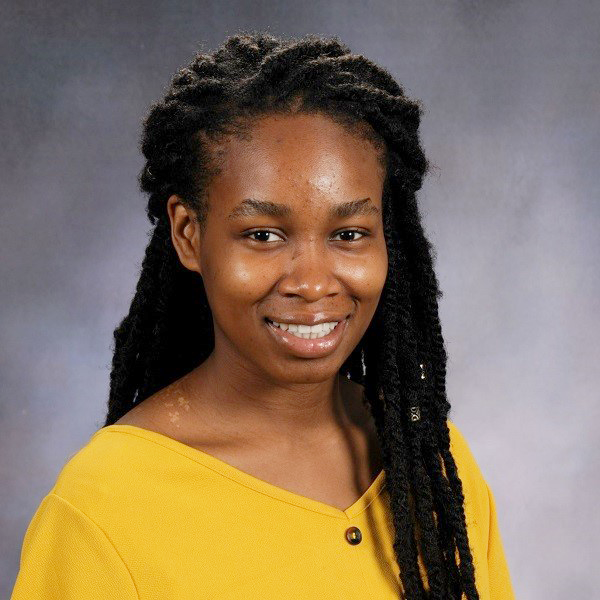Michigan State University is fortunate to have passionate educators who are committed to enhancing the experience of their students and who help to provide the best education possible.
The Graduate School is featuring some of these educators – graduate and postdoc educators – every month to share their unique stories and perspectives on what it means to be a dedicated educator, how they’ve overcome educational challenges, and the ways they have grown through their experiences.
For August 2023, we are featuring Gloria Ashaolu, a doctoral candidate in the Department of History. In her writeup, Gloria explores the meaning of the word “educator” and how understanding its roots helps to define both her role and that of her students.
What does it mean to be an educator at a university?
While the depth and breadth of what it means to be an educator at a university is a topic that far exceeds what I can succinctly describe, an important facet of this role is the inseparable link between teaching, learning, and service. Words carefully mined from a deep dive into the etymology of “educator” also beautifully convey the essence of what this role entails: it is an intentional investment in the cultivation of a student’s personal and academic development through exposure to instructive (useful and informative) concepts and skill sets. At the heart of this lies a commitment and care to nurture the minds (and hearts) of the students we are opportune to teach, learn from, and serve.
“educator” also beautifully convey the essence of what this role entails: it is an intentional investment in the cultivation of a student’s personal and academic development through exposure to instructive (useful and informative) concepts and skill sets. At the heart of this lies a commitment and care to nurture the minds (and hearts) of the students we are opportune to teach, learn from, and serve.
Going back to the etymology of the word “educator,” an illustrative charge I find myself ruminating on has been “to bring forth.” On one level there is the impartation of knowledge (teaching concepts and skills). On another level, there is the fostering of awareness about the learning process (teaching the how). And, on another level, there is an understanding of the relevance and practical application of what students are learning beyond the four corners of their classroom wall (teaching the why). To “bring forth.” To generate. To create. To birth. A process of illuminative discovery and fructifying personal development that yields productive growth.
Students also have a role to play in this “bring[ing] forth:” an active commitment to their own education. However, the opportunity to do so in a space (1) where their lived experiences and voices are valued; (2) where they can shape their own learning experience (feedback, survey, choices, agency, etc.); (3) with an educator who truly cares about them and their (holistic) success, are what makes for a fruitful experience—the “bring[ing] forth” of that which lies within (effectively paired with the tools to hone that which has been brought forth).
What value do you see in Teaching Professional Development?
The beauty and value of teaching professional development (TPD) lie in the growth they afford you (in community and with community): the opportunity to plant new seeds of knowledge and skillsets, nurture and nourish that which you possess, and prune what needs to be discarded—towards a blossoming garden (of teaching and learning development) whereby the wealth of wisdom and experiences you laboriously gleaned can thrive and flourish.
The enriching, evidence-based, accessible, and engaging teaching (and learning) practices from TPDs such as the GTA TLC’s bi-weekly Lunch and Learn and on-campus teaching communities along with “informal” learning spaces, have been deeply instrumental to my personal growth as an educator. The value of investing in my development as an educator rests in the joys and importance of a growth-centered enriching educational experience and an ongoing cultivation of what has been acquired to deter stagnancy or withering.
What is one piece of advice you would give other graduate educators?
Rest—specifically the necessity of cultivating and practicing a rhythm of restorative rest and peaceful stillness within, as we wade through our culture’s prevailing tune of interminable (unceasing) hustle and grind. While the redundancy (and at times oversimplification) of messages about self-care can at times reduce the indispensable and imperative nature of this meaningful practice, it is nevertheless essential.
Success and progress need not be at the dire expense of our well-being and wellness. While the pattern, flow, and tempo of this rhythm of rest will differ at various stages in life, it is a practice that we all must, nevertheless, observe. And, as Sewwandi shared with us a few months ago, a cautionary reality is that “If you don’t take time to take care of your wellness, you will be forced to take care of your illnesses.” With this in mind, I conclude this reflection with these words from Tricia Hersey; they encapsulate my heartfelt desire for us all: “I wish you rest today. I wish you a deep knowing that exhaustion is not a normal way of living. You are enough. You can rest. You must resist anything that doesn't center your divinity as a human being. You are worthy of care.”
What do you enjoy in your free time?
I love exploring new places and opportunities to learn new things. I also find joy in cooking, reading, and spending time with friends and family.


